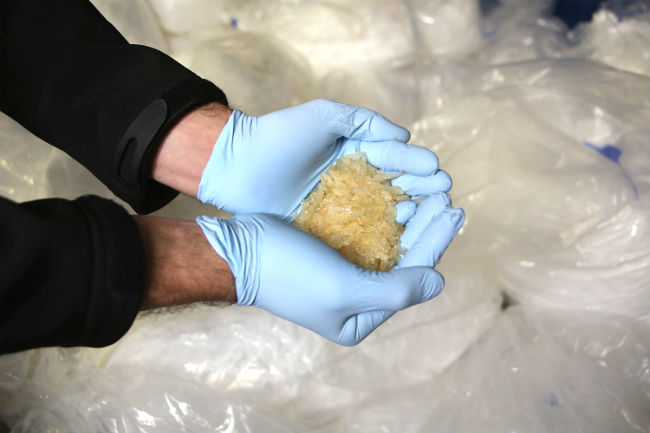
Unless you’ve spent a lot of time in the Middle East recently, you’ve probably never heard of Captagon. Chemically known as fenethylline, its main use in the West was as a milder alternative to methamphetamine before it was banned altogether in the 1980s. But it’s been popular in the Middle East for years, and it’s now being used as fuel for one of the bloodiest conflicts the region has seen.
Captagon is cheap to produce, and Syria, at this point, has no real border control or law enforcement. Thus, labs can turn out millions of the little pills for $5 to $20 a dose, using legal chemicals to do so. In fact, Syria is rapidly becoming the center of the Middle Eastern drug trade, especially in regards to amphetamines, which may be funding both regime and anti-regime forces. But the real problem is that all sides of the conflict are increasingly dependent on the drug.
Captagon itself is essentially meth, but less so. The problem is how it’s used; instead of sleeping, troops on all sides take Captagon, causing chronic sleep deprivation. Food is scarce, and amphetamines suppress appetite, so if the ration is a bit short, it can be followed up with some Captagon.
The net result is increasing inability to control emotions, euphoria, and in extreme cases brain damage and psychosis. Some have reported being unable to feel pain while on Captagon. And all this assumes the drug isn’t a counterfeit made with cheaper and potentially more dangerous chemicals. In other words, a unstable situation is being made even more so.
What Captagon isn’t taken is sold. Both ISIS and the Assad regime are suspected of making and selling Captagon to fund their armies. The drug cartels are so enormous, and so lucrative, even Saudi princes have been working to sell Captagon across the Middle East.
It’s not clear, at this point, how much Captagon is being used and where. One thing that is clear, though, is that unless the war ends quickly, it’ll only become more popular.
(via The Washington Post)
